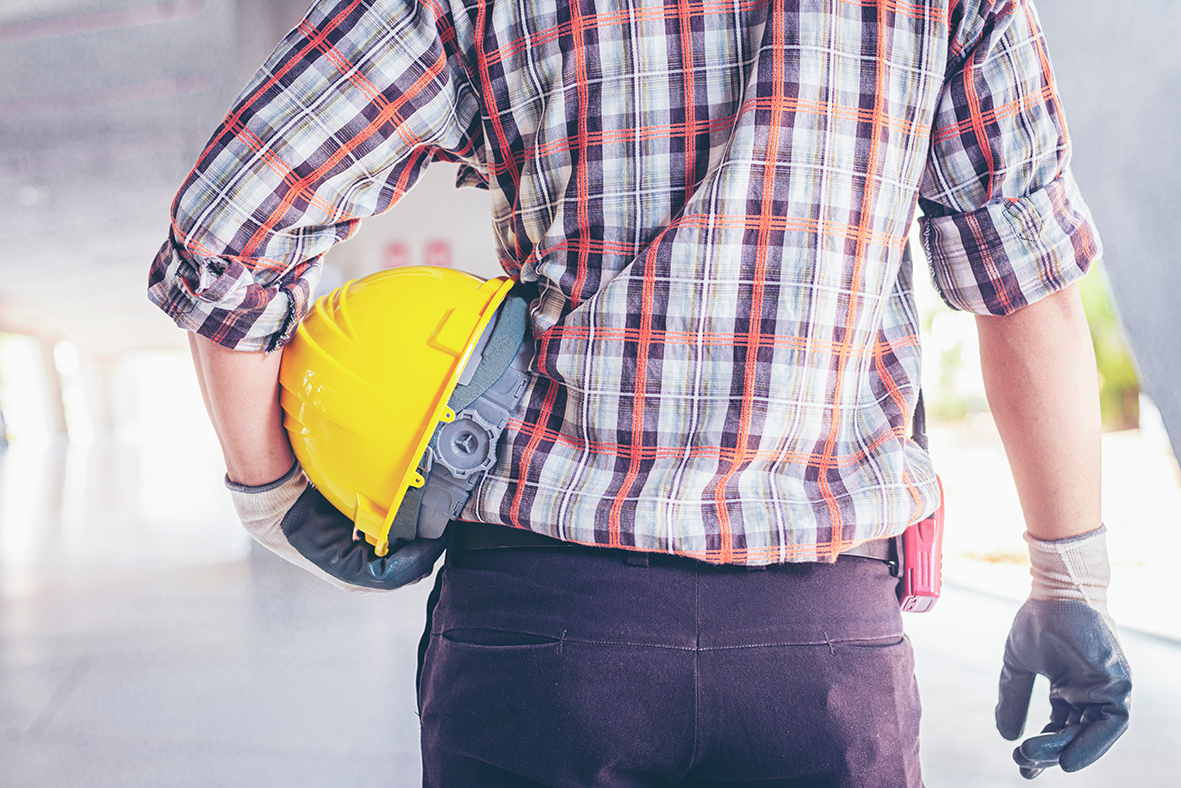Being a tradie is a demanding job and can be both mentally and physically taxing. This month, the Australian Physiotherapy Association (APA) has developed the Tradies National Health Month, with the goal to focus on the health and wellbeing of Australian trade workers.
The time taken off work by tradies due to poor physical health or injury not only affects the tradies themselves, but it can impact their families, businesses, communities, and long term health. Despite tradies constituting 30% of the workforce, they are disproportionately represented in work-related injury statistics. One recent survey organised by the APA revealed that tradies account for:
- 60% of all injury and musculoskeletal disorders across all occupations
- 39% of all medical conditions across all occupations
- 40% of serious claims for upper limb injuries (i.e., hands, wrist, elbow, shoulder)
In addition to these stats, 69% of tradies believe that being sore is a normal part of their work and 60% often report aches and pains due to work. Left untreated, small aches and pains can lead to more serious chronic conditions that can impact a tradie’s ability to work and be healthy. Due to these physical demands, the Tradies National Health Month initiative is raising awareness by encouraging individuals and businesses to prioritise the physical health of tradies.
In addition to the physical toll of trade work, tradies have also reported that their work can impact their mental health. 1 in 4 (25%) tradies experienced mental illness, which is higher than the Australian average of 1 in 5 (20%) individuals. An alarming statistic from a recent study revealed that Australian construction workers are 70% more likely to take their own lives than employees in other industries. This statistic is even higher among young tradesmen. The discussion of mental health is still regarded as somewhat taboo, with 21% of tradies believing their coworkers will think they are “soft” if they complain about being sore on the job. This culture, on top of long hours, physically demanding tasks, and unforgiving weather conditions, can leave tradies feeling tired, lonely, burnt out, and disconnected from friends and family. Ignoring these feelings can lead to tradies facing more severe mental health disorders down the road.
Under Work, Health, and Safety laws, it is the duty of care of the business to manage risks of both physical and psychological harm to their workers. While the workplace has a responsibility to protect their employees, there are also some steps tradies can follow to prioritise their physical and mental health.
Some tips to maintain good physical health, both onsite and off, include the following:
- Stretching: Stretching has a range of health benefits, including increasing your range of motion, improving your posture, increasing blood flow to your muscles, and preventing injury and back pain. 5-10 minutes of stretching before and after work can hugely benefit your physical health down the line.
- Fuel your body correctly: This means drinking plenty of water and eating nutritious food throughout the day.
- Take frequent breaks: Pushing yourself too hard without proper breaks can affect your concentration and energy levels. This increases the risk of making mistakes, which can put yourself and others in harm’s way. This is especially important if the task requires a lot of lifting and/or physical work.
- Get plenty of sleep: Aim for a consistent 7-10 hours of sleep per night. Getting quality sleep is vital for your physical and mental wellbeing, as it resets your mind and repairs your body.
In addition to these steps, it’s important to stay physically fit to meet the demands of work without it impacting your physical health. While tradies may be very physically active throughout the workday, strengthening other muscle groups will reduce the overall risk of musculoskeletal injuries. Physical abilities can also diminish with age, so maintaining physical capacity through exercise is important.
In addition to maintaining physical health, there are also steps that can be taken to support mental health. Below are some simple steps to help create a psychologically safe environment.
- Look out for your mates: It is sometimes noticeable when a co-worker or friend is not quite themselves. Co-workers who seem stressed, irritable, or have poor concentration or memory may be struggling. Identifying this and asking them if they are ok is a good way to let them know you’ve got their back.
- Start a conversation: It can be difficult for tradies to open up when they feel their work environment encourages them to “just get on with it”. This kind of thinking can be harmful and it can make a big difference to start a tough conversation by asking someone about their wellbeing. Any temporary awkwardness is worth the positive impact it can have down the line.
- Take care of yourself: Make sure to prioritise your own mental health. Make time for whatever it is that makes you happy, whether it’s going to the gym, hanging out with friends, or spending time on hobbies. Most importantly, if you are going through a difficult time, it is important to open up to friends and family because keeping silent can make things worse.
- Seek professional help: While there can be stigma to seeking out help, it is one of the most powerful and helpful things you can do if you are struggling with mental health. If you are unsure how to go about this, a conversation with a GP is a great way to start. Health professionals are trained to handle mental health concerns and can give you the support you need.
It is important for tradies to prioritise their mental and physical health to ensure a safe workplace as well as a long, healthy career. Starting conversations around physical and mental health is the first step in reversing the current statistics and improving workplace culture.

